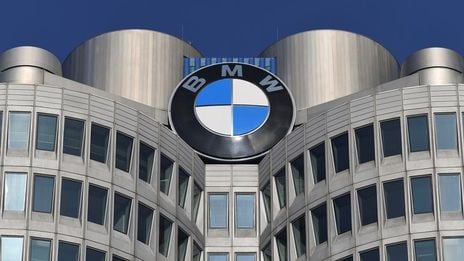Copyright © BusinessAMBE 2023
Automakers are also coming out with their quarterly results. In general, several large companies are experiencing downturns somewhere. But there is not really a general cause, they each have their own problems.
In the news: Mercedes is not getting its electric vehicle business going,
- Mercedes has yet to present its quarterly results, but news agency Bloomberg already knows what CEO
Ola Källenius will soon admit to shareholders: "The transition (from fossil-fuel cars to EVs, ed.) may take longer than expected." - Mercedes' plan was to produce only all-electric cars by the end of this decade. Källenius now states that the company will still produce fossil-fuel vehicles and hybrid cars "well into the 2030s."
-
The manufacturer saw its EV sales drop 8 percent in the first quarter, while nearest competitor
BMW actually sold 41 percent more EVs. So Mercedes needs to change course. It wants to start betting on more expensive luxury cars where profit margins are higher. That should raise those margins to 14 percent by 2026. Last year, the German automaker had to report a decline to 12.6 percent.-
It's a tactic that could work. Ferrari and
Porsche are extracting handsome profit margins from their luxury segment with combustion engines, and Aston Martin is also trying that strategy.
-
It's a tactic that could work. Ferrari and
Good numbers, but other concerns
Noted:
BMW does continue to bet on EVs, after staying ahead of not only Mercedes but also Audi in that segment. It sold 10 percent more cars inEurope . InChina , car sales fell 4.1 percent due to fewer volumes produced in the luxury segment.-
Only: profit margins shrank by 8.8 percent, which was slightly below forecasts. According to
BMW , this was due to rising production costs. The company's final revenue therefore remained somewhat stagnant at36.6 billion euros last quarter.
To follow:
Toyota has adjusted its financial outlook. It now expects a 19.7 percent drop in revenue this year, throughMarch 2025 . That would be4.3 trillion Japanese yen , or about25.8 billion euros . That's less than the5.3 trillion yen the markets were hoping for.- The company's share price, which had been rising sharply, promptly fell 2 percent in response.
-
The company is still struggling with the fallout from a scandal involving business partners committing fraud. As a result, production targets have been adjusted and new CEO
Koji Sato is desperately trying to regain consumer confidence. -
But at the same time,
Toyota did manage to make a particularly good profit. With5.4 trillion yen , just over32 billion euros , it can be satisfied. The company took over the lead of most produced cars in 2023 fromVolkswagen . That came mainly to growing demand for hybrid cars.

© The Content Exchange, source










